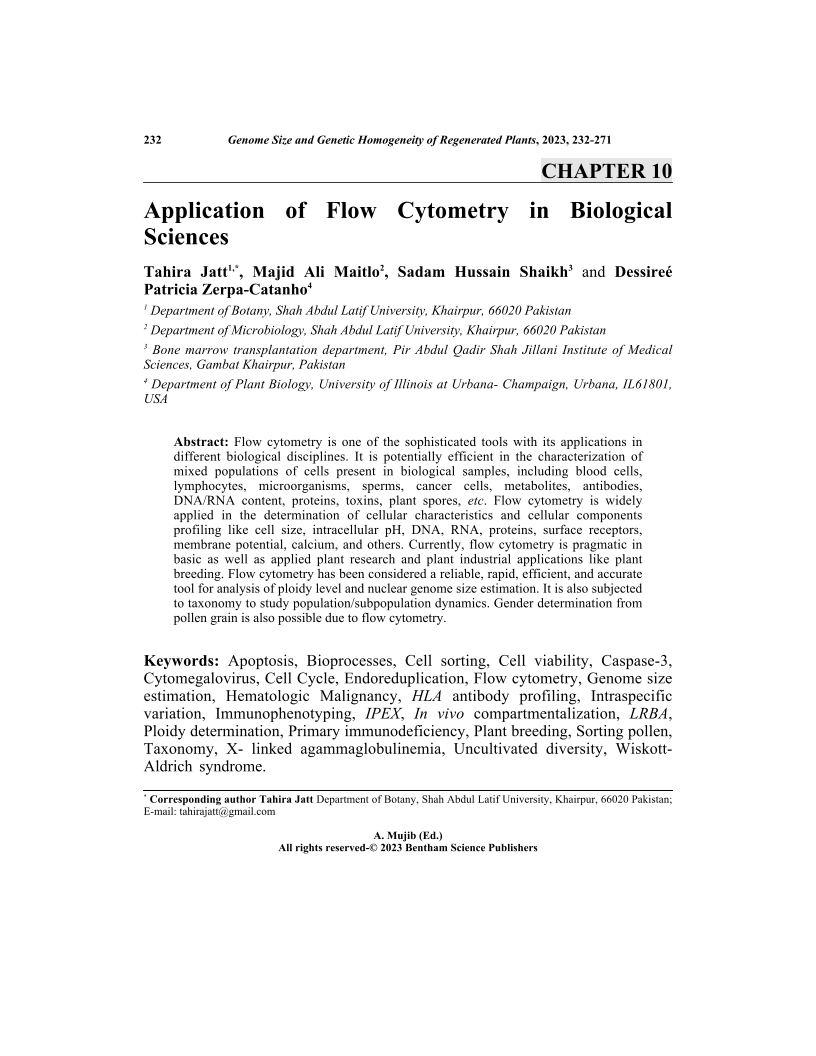Application of Flow Cytometry in Biological Sciences

- Authors: Tahira Jatt1, Majid Ali Maitlo2, Sadam Hussain Shaikh3, Dessire Patricia Zerpa Catanho4
-
View Affiliations Hide Affiliations1 Department of Botany, Shah Abdul Latif University, Khairpur, 66020 Pakistan 2 Department of Microbiology, Shah Abdul Latif University, Khairpur, 66020 Pakistan 3 Bone marrow transplantation department, Pir Abdul Qadir Shah Jillani Institute of Medical Sciences, Gambat Khairpur, Pakistan 4 Department of Plant Biology, University of Illinois at Urbana- Champaign, Urbana, IL61801, USA
- Source: Genome Size and Genetic Homogeneity of Regenerated Plants: Methods and Applications , pp 232-271
- Publication Date: September 2023
- Language: English
Application of Flow Cytometry in Biological Sciences, Page 1 of 1
< Previous page | Next page > /docserver/preview/fulltext/9789815165555/chap10-1.gif
Flow cytometry is one of the sophisticated tools with its applications in different biological disciplines. It is potentially efficient in the characterization of mixed populations of cells present in biological samples, including blood cells, lymphocytes, microorganisms, sperms, cancer cells, metabolites, antibodies, DNA/RNA content, proteins, toxins, plant spores, etc. Flow cytometry is widely applied in the determination of cellular characteristics and cellular components profiling like cell size, intracellular pH, DNA, RNA, proteins, surface receptors, membrane potential, calcium, and others. Currently, flow cytometry is pragmatic in basic as well as applied plant research and plant industrial applications like plant breeding. Flow cytometry has been considered a reliable, rapid, efficient, and accurate tool for analysis of ploidy level and nuclear genome size estimation. It is also subjected to taxonomy to study population/subpopulation dynamics. Gender determination from pollen grain is also possible due to flow cytometry. nbsp;
-
From This Site
/content/books/9789815165555.chap10dcterms_subject,pub_keyword-contentType:Journal -contentType:Figure -contentType:Table -contentType:SupplementaryData105

